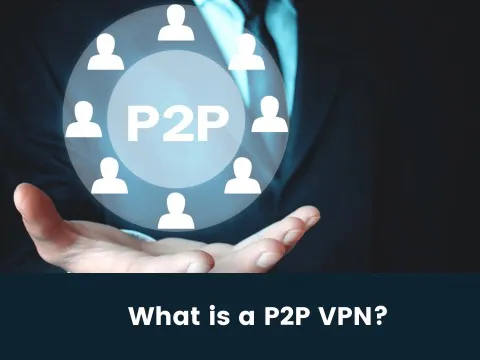- P2P VPN connection refers to a type of VPN setup where two or more devices or networks connect directly to each other without relying on a central server.
- P2P VPN can scale more efficiently than traditional VPN architectures, as each peer can act as both a client and a server.
Peer-to-peer (P2P) VPN connections provide a decentralised and efficient way for users to establish secure private networks over the internet. Whether for remote work, file sharing, or enhancing online privacy, P2P VPNs offer flexibility and robust security features.
What is a P2P VPN connection
A peer-to-peer (P2P) VPN connection refers to a type of Virtual private network (VPN) setup where two or more devices or networks connect directly to each other without relying on a central server. Unlike traditional client-server VPN architectures, where all communication passes through a central hub or server, P2P VPNs establish direct connections between peers (devices or networks).
P2P VPN enables remote workers to securely access corporate networks and resources from anywhere, maintaining privacy and security. They facilitate secure file sharing between devices or networks, especially useful for distributed teams collaborating on projects. P2P VPN can reduce latency and improve gaming performance by establishing direct connections between players. They enhance privacy by masking IP addresses and encrypting data, protecting users’ online activities from surveillance or monitoring.
Also read: Are VPN apps safe?
Also read: Demystifying anti-DDoS VPN: Enhancing cyber security
Advantages of P2P VPN connections
P2P VPNs can scale more efficiently than traditional VPN architectures, as each peer can act as both a client and a server. They offer increased resilience against server failures or network congestion, as connections are direct and decentralised.
P2P VPNs can be more cost-effective for businesses, as they reduce the need for expensive infrastructure and maintenance.
Ensuring robust encryption and authentication mechanisms is crucial to mitigate risks associated with direct peer-to-peer connections.
Is P2P VPN safe to use
A P2P VPN keeps your online activities hidden. This guarantees that no one—including your internet service provider (ISP), applications, websites, or government organisations—will have access to your data. For example, if you are worried that a hacker employed by a rival company will intercept communications sent to or from your organisation’s network, using a P2P VPN can make that nearly impossible. The bad actor, if they intercept anything at all, will merely get jumbled, illegible text that contains no indication of what it was before the encryption.
Also, a VPN adds an extra degree of security. It safeguards users’ identities and what they do, including the files they download, within a peer-to-peer network. This makes it extremely difficult to trace any activity back to a user. For example, if you work on an IT team’s threat investigation unit, you may use a P2P VPN when looking into the activities of threat actors. In this way, you can conceal your true identity, instead of using a company IP address that a hacker may be able to spot right away.
However, a P2P VPN can only protect data from compromise. It does not protect users against harmful files. A peer-to-peer network may expose users to someone who may send them malicious files, which can cause serious problems.
For instance, your VPN will not shield users from malicious software if they download a file that has been purposefully mislabeled, such as a virus. Also, if a downloaded file contains any other harmful software that can be executed on a computer, a P2P VPN will not identify and discard it. In other words, a VPN protects data, but it will not protect your organisation from malicious data.

